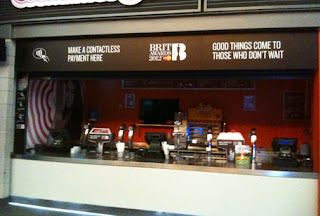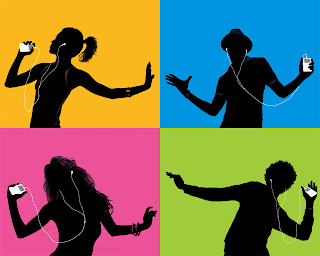So,
The Brit awards, renowned to be the glitziest event in the UK music industry
calendar. And maybe one of the most talked about (and yes maybe a little
criticised events) took one comment to heart, in 2010 when they were accused of
being “an outdated relic”. And so, that’s when it began, one of the biggest
revamps to take place in the history of the Brits.
So,
the changes – included a new venue, a new award designed a British icon, a
greater focus on the album of the year, the scrapping of the outstanding
contribution to music award and changes to the voting academy –
David
Joseph, the CEO of Universal Music UK and the new Brits chairman, told the
Guardian...
“This
will transform the awards”
"I
want to see more music, I desperately want more gravitas – I want it to be
fundamentally about music," he said. "It has been great ... but I'm
trying not to look too much at the past."
The
venue was announced to be moving from Earls Court, “where the show had been
held for the past 11 years,) to the O2 Arena – a switch that will make a huge
difference, said Joseph.
Of
which is where the Government said they were set for a substantial windfall
after the O2 posted record ticket sales of £60.3 million and celebrated its
third year in a row as the world's most popular music venue. (Dec 2010)
The
classic, iconic Britannia trophy also got a revamped. Vivienne Westwood set out
her creative talents upon the ‘blank canvas ’. The 2012 trophy was designed by
legendary pop artist Sir Peter Blake. And the latest one by Damien Hirst (…we
will come back to that)
But
finally, MasterCard, their headline sponsor, the business has successfully
sponsored The BRIT Awards for 15 years. This record-breaking partnership is
largely down to the way MasterCard's sponsorship has been so successfully
leveraged. Their responsibilities have included a vast range from designing and
developing digital campaigns in the run-up to the evening, to organising suite
branding and concession branding on the night not to mention that they run the
sponsor's after-show party, and arrange for a popular celebrity to present The
MasterCard Album of the Year Award, all included in the accomplishment that now
is The Brit Awards.


“We branded all the concessions stands, highlighting MasterCard's
contactless technology with the line, 'Good things come to those that don't
wait'. We also dressed suites in MasterCard collateral to maximise the brand's
reach on the night.” (http://www.biggroup.co.uk/brit-awards.html)
However, 2011 they were to be accompanied by another sponsor- the Brits
had a digital sponsor for the first time: iTunes, which will sponsor the single
of the year award along with Capital radio. So, technology who have had a HUGE
impact on music sales and the industry all together, have joined forces to
celebrate the musicians who lose out in profit because of illegal downloads and
the extremely cost affective iTunes store. Could this be right? Well so far,
it’s been a success and the audience and the artists have taken kindly to the
new developments within the event. Perhaps with the two forces joining together
has helped encouraged audience to download music legally with the successful
iTunes.














